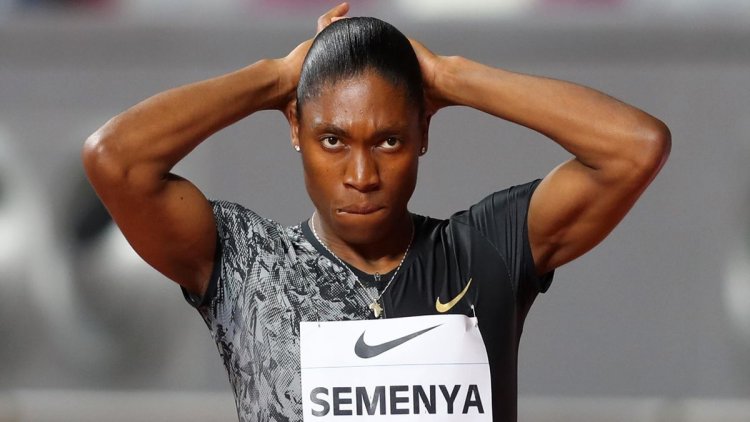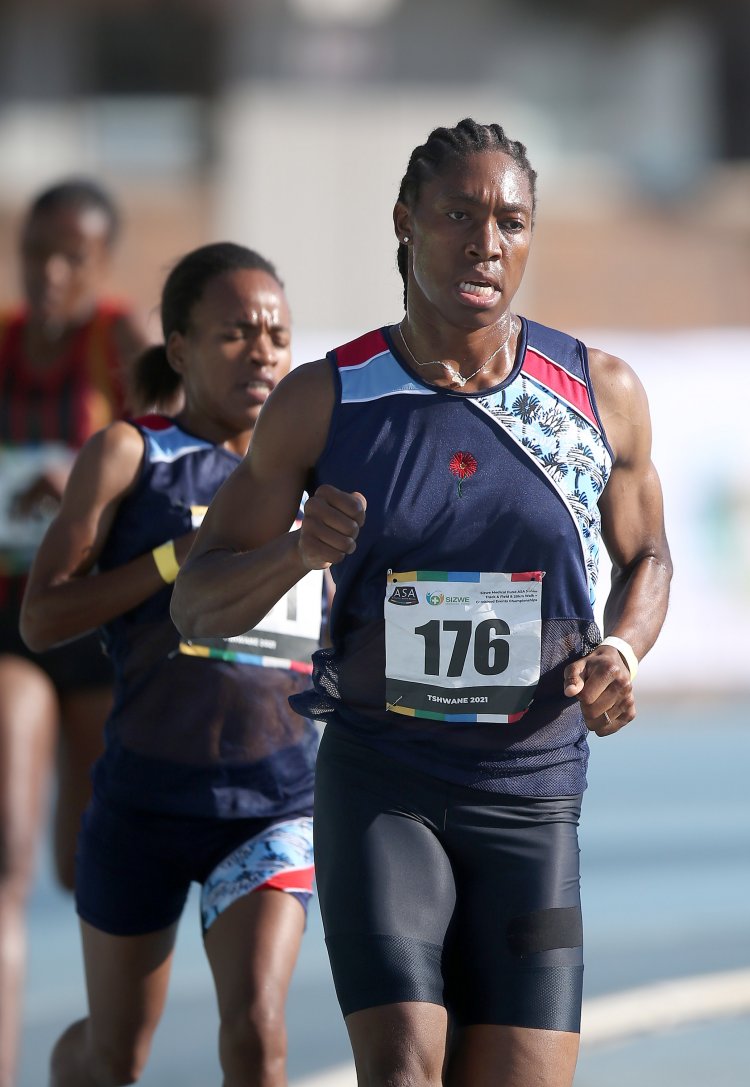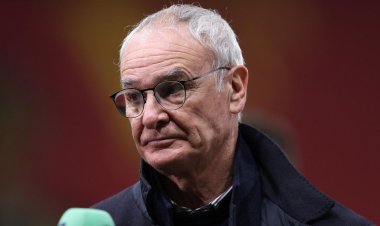Semenya wants to be remembered as the greatest
She still wants to be at the Paris Games in 2024, even if it’s not at her favoured distance

Controversial South African athlete Caster Semenya is many things: a mother of two; a double Olympic champion; a national hero in South Africa; an icon to millions around the world. But ever since she was a teenager, hers was a life lived in the eye of an almighty storm.
She’s 31 now, and heading towards the home stretch of her career. How will it be remembered whenever she decides to hang up her spikes? “I am the greatest that has ever done it,” she says. “That’s what I’ll be remembered for: my talents. I feel unapologetic (about them) and I want people to remember the greatness.”
Semenya has been unable to compete at distances from 400m to the mile since 2019, when the Court of Arbitration for Sport (CAS) ruled in favour of the sport’s governing body, World Athletics, that athletes with differences in sexual development (DSDs) had to reduce their testosterone below five nmol/L to compete in many women’s events.
In 2020, Semenya appealed the decision to the Swiss Federal Supreme Court, which upheld the ruling, saying the regulations were “necessary, reasonable and proportionate” to ensure fair competition in women’s sport.
Individuals with 46 XY DSD are usually born with internal testes that cause their natural testosterone to sit in the male range of 7.7-29.4nmol/L, well above the typical female range (0.12-1.79nmol/L).

Semenya has since opted not to lower her testosterone with medication, which she said caused her to feel sick, gain weight and suffer panic attacks when she tried it in 2011.
While the regulations could eventually extend to other events, right now they apply only to track events where the link between testosterone and performance is most pronounced, leaving athletes with DSDs free to compete below 400m or above the mile.
Semenya ran a 5,000m best of 15:31.50 in April, shy of what was needed for this month’s World Championships, but missing that is “not really a problem” – her chief goal being the Paris Olympics.
“The transition has not been easy, I’m a power athlete,” she says. “I’m a tall figure, I’m more muscular so I have to work on being very lean. Now it’s a matter of mastering how to run distance, and it’s coming. Rome was not built in a day.”
Semenya is covering 130km a week in training these days with a long run of 30km.
“It was not easy the first year but now I’m getting used to it. I started enjoying distance more than speed.”
She’s coached by her wife, Violet, and they have two daughters.
Her eldest will turn three in a few days. How has life changed for Semenya since she became a mother?
“It makes you a better person. Before it was all about myself, but now I live for my family.”
Will her experience in recent years inform her approach to parenting?
“Yeah. The main goal for me is to teach them to understand their rights: how to fight for themselves, how to live for themselves.”
Semenya continues to fight her cause. Early last year, following the federal court ruling, she took a case against Switzerland at the European Court of Human Rights, which has yet to be heard.
“It’s not about winning, I don’t really care about the outcome. It’s about raising awareness about what’s happening with the authorities, how selfish they are, their motives. My goal is just to expose those errors and then fight for justice, always.
“People need to realise that when you’re here for athletes, you better mean it. If you’re a leader and you say sport is for all, you should act like that.”
In recent weeks, swimming’s world governing body barred transgender women from elite female competitions if they’d experienced any part of male puberty. While it’s a very different issue to DSD athletes, the similarities trigger a question for Semenya: what did she make of that ruling?
“I really don’t have an answer because I don’t know. As I’m not transgender, I don’t know how they’re feeling. It’s very complex and a complicated question so, for me, I wouldn’t answer for something I have no experience about.”
An athlete Semenya feels a strong kinship with is old rival Francine Niyonsaba, the Burundian who won silver behind her at the Rio Olympics and who moved up in distance following the introduction of the DSD regulations. Niyonsaba is currently the quickest woman in the world over 3,000m this year.
“We’re very good friends and it’d be great if we could have that rivalry again at 5k. She always wants what’s best for me, I always want what’s best for her. We encourage each other.”
Might Semenya’s daughters follow her path into running? “I hope they do tennis,” she says. “Running can be hard. You don’t want your kids to go through what you went through.”
Despite all she’s faced, she remains a fan of the sport. Semenya and her wife coach a running group in South Africa and despite not competing in Tokyo, she followed the Olympics from afar, saying it was “exceptionally good.”
She still wants to be at the Paris Games in 2024, even if it’s not at her favoured distance. “The goal was to run the 800 until I’m 35, but unfortunately I had to stop before time,” she says. “But the dreams never change. As an Olympian, you always want to be the greatest.”




















